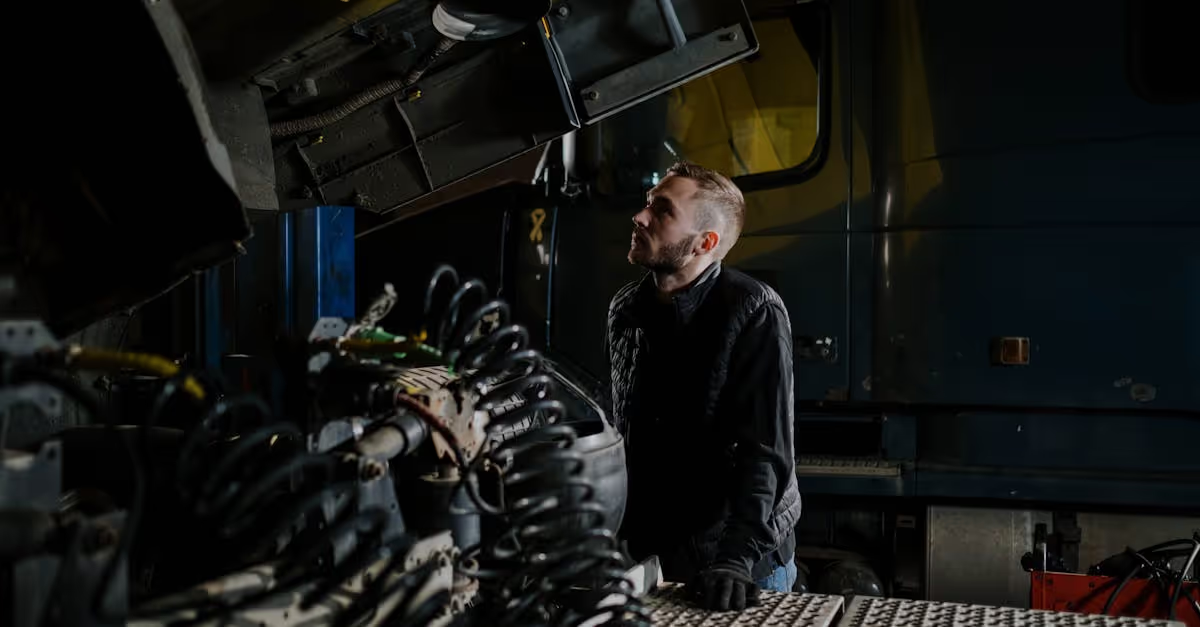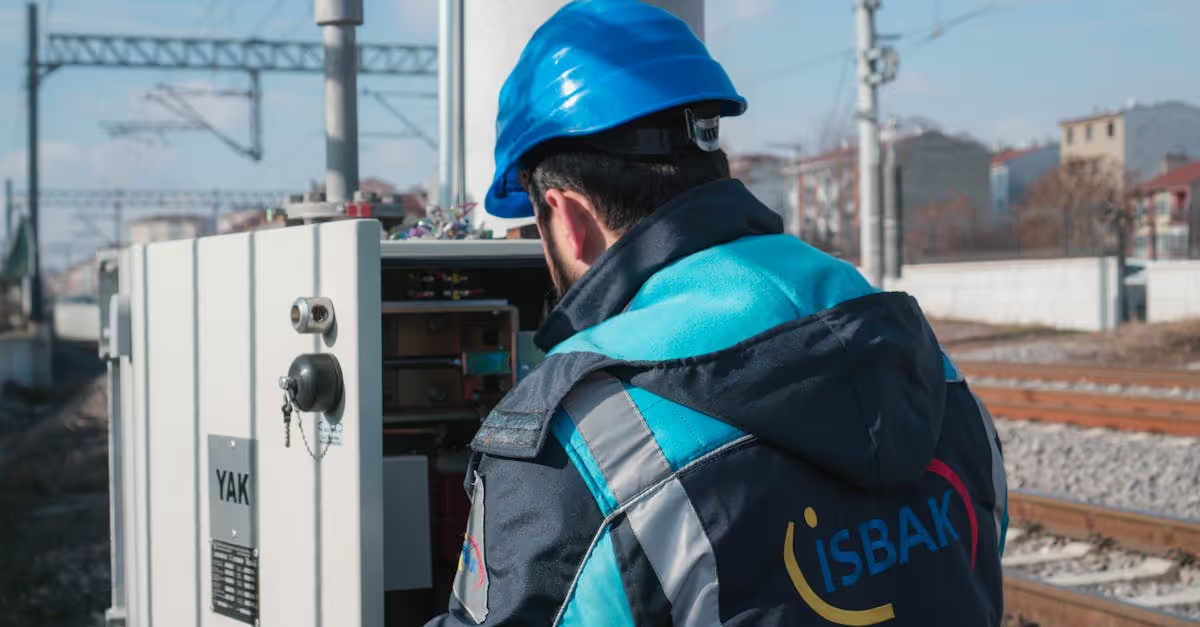Key Takeaways
- Regular inspections of pool equipment can save up to 30% on repair costs and extend the lifespan of your pool.
- Routine checks promote a safe swimming environment by identifying malfunctioning components like pumps and filters before they become serious issues.
- Essential components, including filters, pumps, heaters, and chemical feeders, require consistent monitoring for optimal performance and safety.
- Neglecting maintenance can lead to equipment failures, unsafe swimming conditions, and expensive repairs, making proactive inspections crucial.
- Utilizing technician management software and mobile field service apps can streamline the inspection and maintenance process, promoting efficiency and convenience.
Owning a pool is a dream for many of us, but maintaining it can sometimes feel like a chore. Did you know that regular inspections of pool equipment can save us up to 30% on repair costs? By keeping an eye on our pool's components, we not only ensure a safe swimming environment but also extend the lifespan of our equipment.
Importance of Pool Equipment Maintenance
Regular maintenance of pool equipment plays a critical role in extending the lifespan of our pools. By prioritizing inspections, we join the collective effort to create safe swimming environments while saving on future repair costs.
Benefits of Regular Inspections
Regular inspections provide numerous advantages. We can catch minor issues before they become significant problems, leading to savings of up to 30% on repairs. Inspections promote safety by identifying potential hazards, like malfunctioning pumps or leaks, allowing us to swim without worry. The routine check also helps our equipment operate efficiently, conserving energy and reducing utility bills. By using automated field service solutions, we streamline our scheduling and tracking, making inspections as effortless as possible.
Consequences of Neglect
Neglecting pool equipment maintenance can lead to serious consequences. Equipment failures often result in unsafe swimming conditions, potentially endangering our loved ones. The longer we delay inspections, the more costly repairs can become. A malfunctioning filtration system might allow debris to accumulate, turning our pristine oasis into a swamp. Furthermore, irregular maintenance can damage our pool surface and equipment, leading to expensive replacements. Staying engaged with our equipment and utilizing technician management software helps us avoid these pitfalls and fosters a proactive community approach to maintaining pool safety and enjoyment.
Essential Pool Equipment Components
Regular inspection of essential pool equipment guarantees proper functioning and helps prevent costly repairs. Let’s dive into the key components we need to monitor.
Filter Systems
Filter systems play a crucial role in keeping our pool water clean. We check the filter for any debris and blockages. A clean filter improves water clarity and keeps contaminants at bay. Perform inspections based on the filter type: sand, cartridge, or diatomaceous earth. Each type requires specific maintenance, like backwashing or routine cleaning. Always follow the manufacturer’s instructions for best practices. We keep an eye on the filter pressure, making sure it’s within recommended ranges. This monitoring helps us catch any clogs or damages early on, allowing for straightforward solutions instead of costly repairs later.
Pumps
Pump efficiency affects our pool's water circulation. We inspect the pump for signs of wear and irregular sounds. A well-functioning pump keeps water moving and helps maintain chemical balance. If we notice any leaks or inconsistencies in operation, immediate action is essential. Regular checks help prolong pump life and ensure our pool runs smoothly. We use technician management software to schedule assessments regularly. This tool assists us in maintaining a proactive approach, preventing downtime during peak swimming season.
Heaters
Heaters provide warmth for our relaxing swims. We examine heaters for rust, leaks, and any signs of malfunction. Regular maintenance checks lead to efficient heating, making chilly swims a thing of the past. Keeping track of heater performance helps us avoid unexpected failures. If our heater struggles to maintain temperature, this could indicate a need for servicing. It’s prudent to engage professionals using service dispatch software to handle complex repairs efficiently.
Chemical Feeders
Chemical feeders automate our pool's chemical distribution, maintaining optimal water quality. We inspect these feeders for clogs or discrepancies in chemical delivery. Relying on precise measurements, we ensure that chemicals disperse evenly and effectively. Regular checking and maintenance help prevent erratic chlorine levels. Utilizing mobile field service apps allows us to streamline this process, ensuring chemical balance stays in check. With everyone contributing to maintaining great pool water quality, we enhance our community’s enjoyment.
By staying diligent with these inspections, we can enjoy our pools without worries about costly repairs in the future.
Steps for Inspecting Pool Equipment
Regularly inspecting our pool equipment keeps everything running smoothly and saves us from costly repairs. Focusing on a few key areas helps us maintain a safe and enjoyable swimming experience.
Visual Checks
- Pumps: We check for wear, leaks, or malfunctions. Inspecting the pump seals for leaks ensures no water escapes. Full capacity operation without strange noises or vibrations indicates a healthy pump.
- Filters: We examine filter media and components for any signs of damage or blockages. The filter gauge typically shows a recommended range of 8-15 psi; staying within this range allows for optimal performance.
- Heaters: We look for consistent heating and signs of corrosion. Confirming all connections and components are in good condition prevents unexpected heating failures.
- Plumbing: We assess the plumbing system, examining pipes and fittings for leaks or degradation. Ensuring all connections are secure keeps water flowing where it should go.
Functional Tests
We execute functional tests on each piece of equipment to verify their operational efficiency. Testing pumps for pressure output confirms they’re performing correctly. Running the heater helps us detect any overheating or failure to heat the water adequately. Checking filter flow rates ensures proper cleaning takes place, while testing the plumbing system guarantees we've got no unseen leaks disrupting our water flow.
Cleaning Requirements
Regular cleaning boosts equipment efficiency and lifespan. We clean filters based on the type; sand and cartridge filters might require different methods. We also ensure that debris around the pump is cleared away to promote airflow. Occasional deep cleaning of heaters removes any buildup and keeps everything efficient. By incorporating mobile field service apps or technician scheduling tools, we streamline these cleaning processes, adding convenience to our pool maintenance routine.
Common Issues to Look For
Regular inspections reveal key issues that can affect pool equipment functionality. Identifying these early can save time, money, and headaches down the line. Here are some common problems to watch for.
Leaks and Drips
Leaks cause more than just a wet deck. We should closely inspect the plumbing system, including pipes and fittings, for any signs of moisture. A leaking pump, filter, or heater contributes to water loss and can damage surrounding areas. Checking the connections and seals around these components ensures they remain tight. We can easily spot leaks by searching for water pooling around the equipment or on the deck. With effective mobile field service apps, we can document findings quickly, enhancing the inspection process and maintaining our pools efficiently.
Unusual Noises
Ever hear your pool pump sound like a heavy metal concert? Unusual noises from equipment often signal underlying issues. Screeching sounds hint at worn-out bearings in the pump motor. We mustn't ignore these alerts. Addressing these mechanical concerns promptly prevents more extensive damage. We should also listen for any grinding or clanking noises while the equipment is in operation. Taking notes during inspections helps track progress and identify patterns. If we find ourselves consistently noting noise issues, might it be time to explore technician management software for better solutions?
Inconsistent Performance
Do our pool pumps sometimes act like they’ve had too much caffeine? Inconsistent performance leads to cloudy water and compromised sanitation. We need to monitor pump efficiency and inspect filters regularly. Each component should circulate water effectively. A lack of performance may indicate blockages or damage, requiring immediate attention. Tracking performance over time helps us gauge when maintenance is needed. We've found that using technician scheduling tools streamlines the process, ensuring our pools always maintain optimal conditions.
By staying on top of these common issues, we foster a proactive approach toward our pool maintenance and enjoy cleaner, safer swimming environments.
Conclusion
Regular inspections of our pool equipment are essential for maintaining a safe and enjoyable swimming environment. By staying proactive and addressing issues before they escalate, we can save significantly on repair costs while extending the lifespan of our pool components.
Utilizing tools like technician management software can simplify our inspection processes and help us keep track of maintenance schedules. With a little effort and attention, we can ensure our pools remain in top condition, allowing us to enjoy countless hours of relaxation and fun without the worry of unexpected repairs. Let's commit to making pool maintenance a priority for the benefit of our pools and our peace of mind.
Frequently Asked Questions
What are the benefits of owning a pool?
Owning a pool offers a great way to relax, enjoy outdoor activities, and enhance your property’s value. It's perfect for family gatherings and social events, allowing you to cool off and exercise. However, it's crucial to keep in mind that maintenance requires effort and commitment.
How can regular inspections save money on pool repairs?
Regular inspections of pool equipment can identify potential issues early, preventing major repairs and saving up to 30% on costs. Catching problems like leaks or malfunctioning pumps before they escalate can maintain your pool's functionality and safety.
Why is maintenance important for pool safety?
Proper maintenance is vital for ensuring a safe swimming environment. Regularly checking pool equipment helps identify hazards, like leaks or faulty pumps, which can pose risks to swimmers. Safe pool practices reduce the chance of accidents or injuries.
What equipment should be regularly inspected?
Key pool equipment that requires regular inspection includes filter systems, pumps, heaters, and chemical feeders. Each component plays a crucial role in maintaining water clarity, circulation, heating, and chemical balance, ensuring a safe swimming experience.
How can I streamline my pool inspections?
Using automated field service solutions and technician management software can significantly streamline your pool inspections. These tools allow for efficient scheduling, tracking maintenance routines, and ensuring thorough inspections, making pool care easier and more effective.
What are common issues to look for during pool inspections?
Common issues include leaks, unusual noises, and inconsistent equipment performance. Identifying these problems early can prevent costly damage and maintain a clean, safe swimming environment. Regular monitoring is crucial for optimal pool operation.
What steps should I take to inspect my pool equipment?
Start by visually examining equipment for wear, leaks, or damage. Perform functional tests to ensure all parts are operating effectively, including pumps, heaters, and filters. Regular cleaning and specific maintenance for each filter type are essential for enhancing performance and lifespan.
How does neglecting pool maintenance affect me?
Neglecting maintenance can lead to serious consequences, such as unsafe swimming conditions and costly repairs. Issues like plumbing leaks or malfunctioning pumps may worsen over time, resulting in water loss and damage, ultimately compromising the pool's safety and enjoyment.






